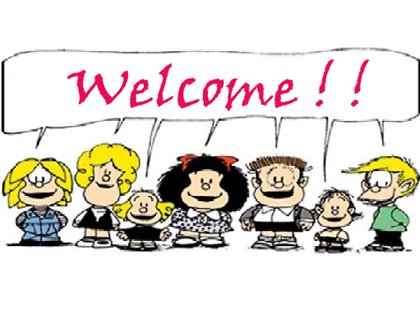The school year is over. The play has come to an end. Rita has faced several challenges in her life, but none as challenging as getting an education.
At the beginning of the play, Rita said she wanted to know everything the educated ones knew. She hold the belief that the high and educated classes were people who felt superior because they could maintain conversations about various topics. And she wanted to be like them, being able to have a normal conversation with any kind of person, and expressing her ideas in the appropriate way.
Throughout the play, we noticed changes in Rita's way of speaking, trying to sound more proficient and cultivated. She also suffers changes in her personal life, she separates from her husband, quits her job at the hairdresser's, and starts getting in touch with normal students and people with whom she probably would never have had a relationship if she hadn't started attending college.
By the end of the play, Rita's apparently learnt to judge her relationships better, after realising people are not always as they seem. She seems to be able to apply her knewly acquired knowledge in her life. She has a new job, she is considering new possible ways to go on with her life...
I believe that Rita has both suffered and gained something from her experience in university.
She has suffered personal losses: her husband Denny, her family and friends have grown appart from her. She suffered greatly the culture clash she experienced both with Frank and the rest of the students. Her coming from a working-class environment certainly had some drawbacks through the learning process. She had problems at the beginning dealing with new authors and vocabulary, as she couldn't quite grasp the true meaning of the bibliography. She tried to make herself understood by means of her own jargon, which was not possible nor acceptable if she really wanted to learn as the rest of the students and pass exams in the right way.
She had to "adapt" her way of speaking her mind, she learnt how to be objective rather than subjective, which was EXTREMELY difficult for her, as she is very straightforward.
She gained streetwise knowledge, appart from academic knowledge. She learnt to be objective but without loosing her originality and uniqueness.
Rita has changed a lot during the course of the play, but without completely loosing herself. She knows she comes from a different background than most of the average students, but she is OK with this fact. She has come to terms with her personal life and she has accepted the good and the bad things that came to her as a result from getting an education.
What's most important is that she knows SHE HAS A CHOICE. She is free to choose how to live her life, who to relate with, what to do with herself. And she knows she is the one responsible for the outcomes of her decisions.
Monday, 17 November 2008
Subscribe to:
Post Comments (Atom)


1 comment:
At first, when I read "he school year is over. The play has come to an end., I thought you were talking about us, L@u (you, me and everyone else in the course, you know). But then, as I went on to see you mentioned "normal students" and "normal conversations" I realised that wasn't the case! ;-P!!!
Talking seriously: you've written "Rita has changed a lot during the course of the play, but without losing herself." I'd like to go further and say what has made this an educational experience (i.e. an opportunity for her to develop towards her full potential) is precisely that she has learned a lot and thus become better able to find and express her true self with those around her.
Now, when you say "her husband Denny, her family and friends have grown apart from" Rita, I thought... "hey, to me it's been exactly the other way around". I mean, Rita is the one who's grown (apart, ahead, around... you choose!). This is what getting an EDUCATION means to me: GROWING. It's precisely because her husband and family have "chosen" (?, but that's for another day) not to develop/change that a gap has grow between them...
Do you see my point?
Thanks for sharing!
Fondly,
Gladys
PS: I don't agree there are "normal conversations", "appropriate ways to express ideas" per se, "true meanings" of texts or "right ways to pass exams", but I thought that was too large a discussion to hold it here today! :-*
Post a Comment